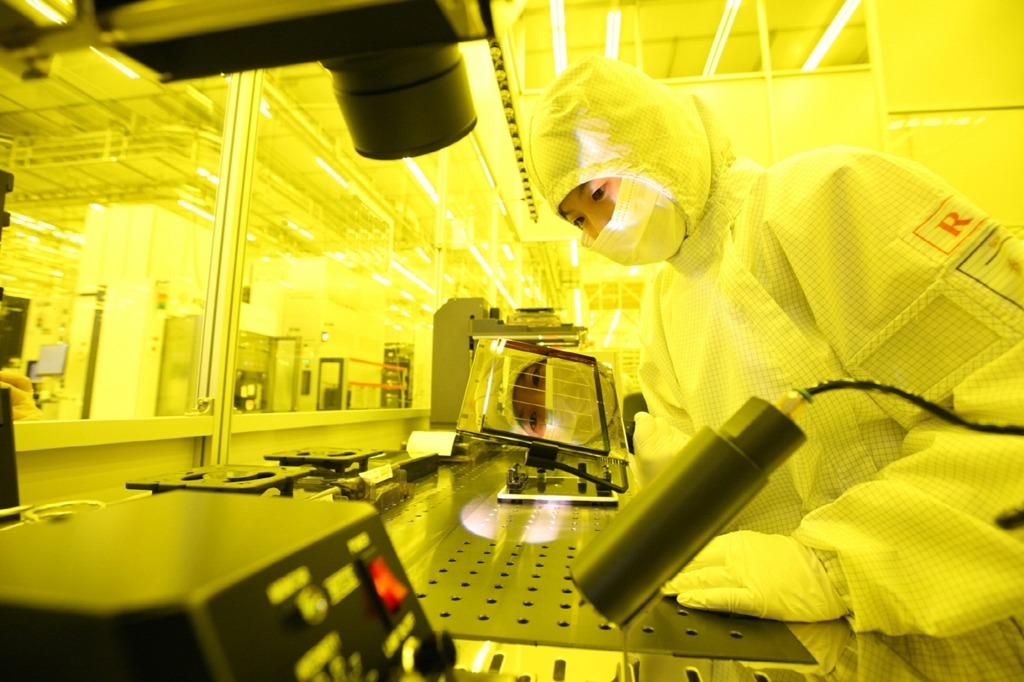Top Stories
US Revokes Waivers for Samsung and SK Hynix on Chip Production in China

The United States has revoked waivers that allowed Samsung Electronics Co. and SK Hynix Inc. to use American technology for semiconductor manufacturing in China. This decision, announced by the U.S. Department of Commerce, is expected to significantly impact the operations of these leading global memory chip manufacturers in a market critical for semiconductor production.
The Commerce Department stated on Friday that it will now require both Samsung and SK Hynix to obtain licenses for exporting semiconductor manufacturing equipment and technology to their Chinese facilities. Previously, both South Korean companies were granted exemptions from restrictions imposed in October 2022. The bureau emphasized that the closure of this loophole ensures that these companies will need to operate under the same regulatory framework as their competitors.
Samsung and SK Hynix have a limited timeframe to adapt, as they will have 120 days to adjust before the waivers officially expire. The Department of Commerce clarified that the companies may only purchase U.S. technologies for the operation of their existing fabs in China. Importantly, licenses will not be granted for capacity expansions or technological upgrades at these facilities.
Impact on Semiconductor Production
The implications of this decision are significant. Industry sources in Seoul indicate that the restrictions will confine both companies to producing legacy chips in China, hindering their ability to manufacture advanced products such as high-bandwidth memory (HBM) chips, which are critical for applications in artificial intelligence (AI).
At present, Samsung produces approximately 35-40% of its total NAND flash memory chips at its Xi’an facility, while SK Hynix manufactures around 40% of its DRAM and 20% of its NAND flash chips across various sites in China, including Wuxi and Dalian. The U.S. measures are likely to compel China’s domestic semiconductor industry to pursue its own development more aggressively, as the restrictions could limit the growth of foreign competitors.
Samsung’s Executive Chairman Jay Y. Lee acknowledged the challenges posed by the U.S. restrictions, emphasizing the need for the company to adapt its strategies in light of these developments.
Strategic Adjustments Ahead
The changes introduced by the U.S. government are expected to necessitate a reevaluation of the long-term strategies of both Samsung and SK Hynix in China. According to industry experts, the requirement for U.S. government approvals for equipment procurement could lead to delays, impacting production timelines.
One source noted, “Delays in equipment will inevitably require us to strategically adjust production lines in China.” With the added complexity of needing regular approvals, both companies may face significant challenges in maintaining their operational efficiency in the region.
As a potential response to these restrictions, Samsung and SK Hynix might consider gradually relocating some of their manufacturing operations from China to South Korea in the medium to long term. This strategic shift could help mitigate the risks associated with the U.S. regulatory landscape and ensure continued access to advanced semiconductor technologies.
The evolving situation underscores the increasing geopolitical tensions surrounding semiconductor technology and highlights the challenges faced by companies navigating complex international regulations.
-

 Lifestyle3 months ago
Lifestyle3 months agoLibraries Challenge Rising E-Book Costs Amid Growing Demand
-

 Sports3 months ago
Sports3 months agoTyreek Hill Responds to Tua Tagovailoa’s Comments on Team Dynamics
-

 Sports3 months ago
Sports3 months agoLiverpool Secures Agreement to Sign Young Striker Will Wright
-

 Lifestyle3 months ago
Lifestyle3 months agoSave Your Split Tomatoes: Expert Tips for Gardeners
-

 Lifestyle3 months ago
Lifestyle3 months agoPrincess Beatrice’s Daughter Athena Joins Siblings at London Parade
-

 World3 months ago
World3 months agoWinter Storms Lash New South Wales with Snow, Flood Risks
-

 Science3 months ago
Science3 months agoTrump Administration Moves to Repeal Key Climate Regulation
-

 Science2 months ago
Science2 months agoSan Francisco Hosts Unique Contest to Identify “Performative Males”
-

 Business3 months ago
Business3 months agoSoFi Technologies Shares Slip 2% Following Insider Stock Sale
-

 Science3 months ago
Science3 months agoNew Tool Reveals Link Between Horse Coat Condition and Parasites
-

 Sports3 months ago
Sports3 months agoElon Musk Sculpture Travels From Utah to Yosemite National Park
-

 Science3 months ago
Science3 months agoNew Study Confirms Humans Transported Stonehenge Bluestones









